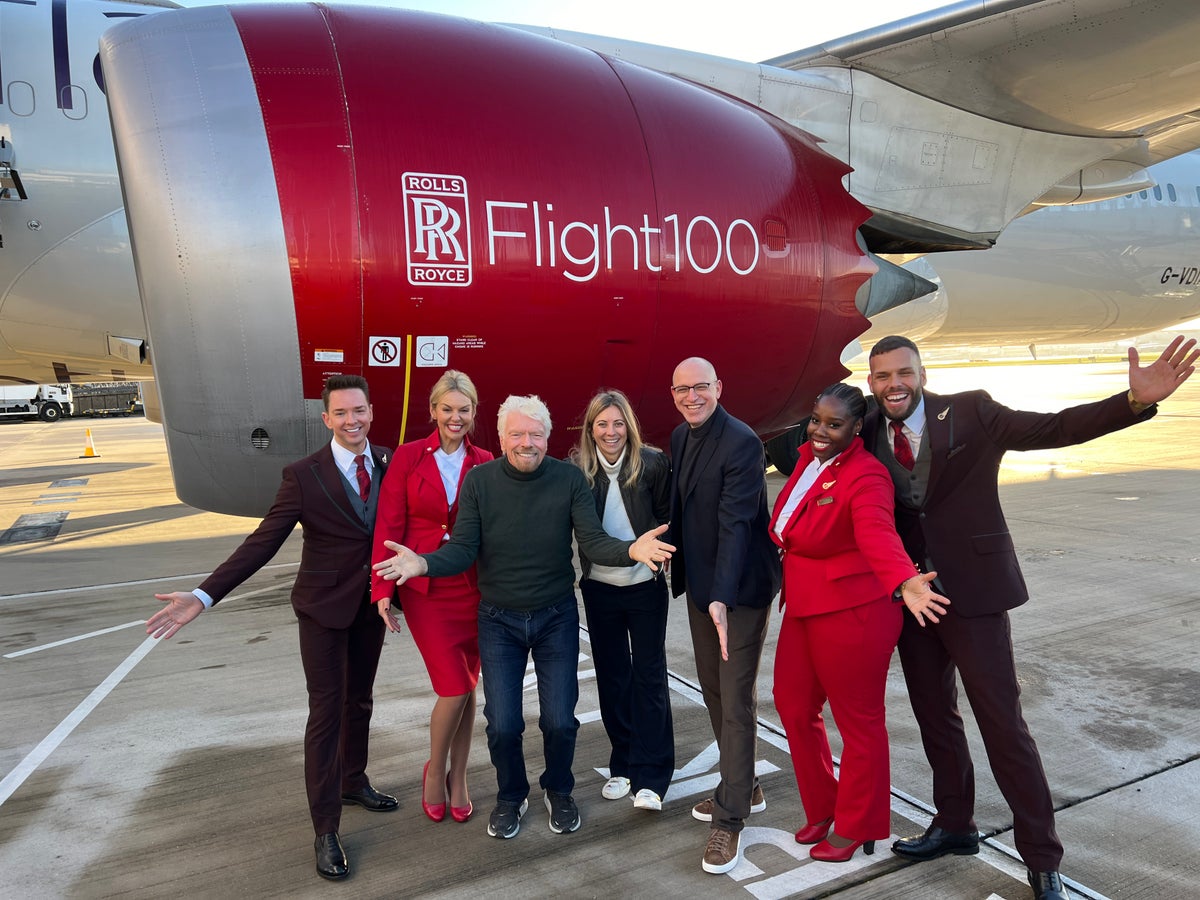
“Net-zero ‘flight tax’ will raise cost of holidays”: so read the front-page splash in the latest Sunday Telegraph. The government’s own assessment, said the article, “shows the new mandate could add hundreds more pounds to tickets” – potentially £300 for a family holiday for four.
Opposition figures have deplored what they describe as the latest move from the “net-zero blob”.
Air Passenger Duty already puts up the cost of flying by a significant amount. So what is this new tax, what is it for, and whose idea is it?
Why a new tax on flying?
The Sustainable Aviation Fuel Mandate (SAF Mandate) isn’t a tax. It is an order for suppliers of aviation fuel to supply a certain percentage of SAF as part of the “jet zero strategy” to reduce the impact of aviation on the environment.
Modern aircraft can happily fly without modification on a blend of kerosene (traditional aviation fuel) and SAF. Starting this month, suppliers are expected to use 2 per cent of SAF, increasing to 10 per cent in 2030 and 22 per cent by 2040.
What exactly is SAF and why is it needed?
SAF is derived from a range of sources from used cooking oil and household waste to crops grown specifically to be converted to fuel suitable for jet propulsion.
The aim is to reverse the current increase in CO2 emissions created by aviation.
The amount of carbon pumped out by engines using SAF is exactly the same as kerosene. The reduction in CO2 comes from savings over the lifecycle of the fuel. For example, growing crops takes carbon from the atmosphere, while using waste that would otherwise go to landfill reduces methane emissions.
The giant airline Emirates says SAF will “reduce carbon emissions by up to 85 per cent”. Virgin Atlantic goes for a more modest 70 per cent reduction. Richard Branson’s airline notably operated a SAF-only flight from London to New York.
But environmental campaigners dispute the predicted savings. They also say growing crops specifically to be converted to fuel damages biodiversity and causes deforestation – making it even worse than using fossil fuels.
Any other problems?
If you assume the claimed benefits of SAF are correct, the next problem is: there isn’t enough SAF around. In 2022, according to the International Air Transport Association (Iata), it amounted to just 0.1 per cent of fuel used by airlines.
With strong demand and low supply, prices are high – typically two to three times higher than kerosene.
Part of the government’s cunning plan is that suppliers will be able to pay for exemption from the obligation. But the cost of a buy-out will be such a high price that firms will be desperate to procure SAF – spurring a fast expansion in this nascent industry.
Increasing scale should bring SAF costs down, the argument goes.
Currently the plan is for ministers to set a buyout price of £5,880 per tonne, which is around 10 times the price of fuel this week. If suppliers have no choice but to go for the buyout option, then airlines’ costs will rise sharply – and so will air fares.
Are the airlines furious?
No. “UK airlines support the SAF Mandate as both a powerful and practical tool for driving down aviation carbon emissions and a clear signal that the industry is fully committed to a net zero future,” said Tim Alderslade, chief executive of Airlines UK.
“Our priority is ensuring airlines have access to the increasing volumes of SAF required to meet the mandate as global demand soars, at the most competitive price possible for consumers.
“The UK mandate is ambitious and scaling SAF production will mean further work to expand eligible feedstocks, incentives to help cut costs and, critically, ensuring the design of the revenue certainty mechanism enables the UK to increase production of advanced fuels this decade.”
Could a family of four really pay £300 more for their holiday flights?
Almost certainly not. Under two of the three scenarios proposed by the Department for Transport (DfT), the average one-way ticket price of £173 would rise by £9.40 because of the mandate – just over 5 per cent. But should there turn out to be a shortage of “the right kind of SAF” then it could rise four times higher, to £37.80. Multiply that by eight (return tickets for a family of four) and you reach £302.40.
But as the assessment says: “If this scenario were to materialise, the government could immediately review the mandate and prevent such significant increases in ticket prices.”
Other possibilities include electric aviation – potentially zero emission – using batteries or hydrogen. But the transport select committee says: “Electric batteries are unlikely to become small or light enough to make them suitable for anything beyond short-haul flights.
“Hydrogen is likely to demand large amounts of storage space and is highly flammable.”
Other scenarios include the possibility that by 2040 you and I will be flying around using personal jetpacks.
Fifteen years is a long time in aviation – and politics.
Whose idea is it?
“This is another example of Labour putting socialist ideology ahead of the interests of the public they are elected to serve,” Conservative MP Esther McVey told The Telegraph. The former work and pensions secretary under Boris Johnson seemingly believes this is a woke wheeze from Keir Starmer’s government.
But these proposals were mapped out under Rishi Sunak premiership, following a mandate decreed by Johnson’s government and which continued unamended during Liz Truss’s brief tenure at No 10.
Labour has merely accepted the Tory plans.
So when David Frost, former chief Brexit negotiator, talks about “the latest attempt by the net-zero blob to reduce carbon emissions by putting ordinary pleasures like a holiday abroad out of the reach of the average person”, he has his former boss, Boris Johnson, firmly in his sights.







